
The PAWS/EuroPAWS Awards Evening
Tuesday 4 December 2007, 7.00pm
at
The
Institution of Engineering and Technology (IET) Savoy Place,
London WC2 |
Awards Panel
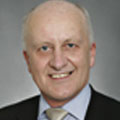 |
John
Loughhead
President IET 2007/8
John Loughhead is Executive Director of the UK Energy Research Centre.
The Centre is charged with conducting whole systems research while ‘networking'
the energy research community. A major part of John's role is high-level
networking with UK and overseas researchers and Governments - particularly
in India and China - while ensuring that the Centre continues to operate
on the cusp of energy research and policy, with strong ties to Government.
John's professional career has been predominantly in industrial research
and development for the electronics and electrical power industries.
For several years he has been extensively involved in national and
European public sector technology programmes, as a member of various
advisory committees and chair of policy reviews in the area of future
electric power systems.
He is a member of the Defence Scientific Advisory Council Technology
Board, Assessor for the DTI Technology Programme, Advisor and Assessor
to the European Commission Directorate-General Research, chaired the
EC Hydrogen & Fuel Cell Implementation Panel and has recently been
appointed co-chair of the Implementation Committee of the International
Partnership for the Hydrogen Economy. He is a member of several university
advisory boards and of the UK's Energy Research Partnership. |
|
|
 |
Susan
Rae
If you have never seen Susan Rae, you will almost certainly have heard
her - most currently as a newsreader on BBC Radio Four or Radio 2;
perhaps narrating murder and science documentaries on Discovery, telling
you things you never knew on the History Channel, or filling you in
on showbiz gossip on the Biography Channnel. Susan has also presented
all kinds of television programmes and conferences. She has been with
PAWS since its inception. |
|
|
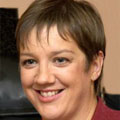 |
Sue
Nelson
An award-winning science broadcaster and writer, Sue is also a former
BBC science, environment and technology correspondent for News 24,
Breakfast and the One O'clock television news. She believes in communicating
serious scientific concepts with humour and creativity. As a result,
she has written and presented radio science documentaries in the form
of a film noire, a Mills and Boon novel and a fat fighter's audio diary.
Her reports have appeared on all the BBC's national television and
radio news bulletins on a range of scientific stories – from
cloning, stem cells and SARS to space missions, anthrax outbreaks and
foot and mouth disease. Her online banking expose for Newsnight resulted
in major banks and building societies reassessing their security measures.
Sue is co-author of the popular science book How to Clone the Perfect
Blonde (long listed for the Aventis Science Book Prize, 2004)
and was part of the Welcome Trust's Big Screen Science project – where
school children made short dramatic films and animations on science.
The recipient of a prestigious Association of British Science Writer's
Award and a BT Technology Journalist Award, Sue's Radio 4 programmes
and series include the Britain's Modern Brunels and the critically
acclaimed Alienation, Abduction and Reason; The Harvard Computers and Right
Stuff Wrong Sex.
A physics graduate, Sue also studied space science and astronomy at
the University of Michigan as a Knight Wallace journalism fellow in
2002 and recently completed a one year Nesta Dream Time fellowship
writing science-based dramas. She has also written and performed stand
up comedy; wrote the Radio 2 1960s musical tribute Is That Jimmy's
Ring You're Wearing? starring Twiggy and Adam Faith; and her comedy
drama, Falling to Pieces, was broadcast on BBC7.
Her most recent Radio 4 series, Citizen Science, prompted
a call from the Palace. Both the Queen and Prince Philip had enjoyed
the programme! |
|
|
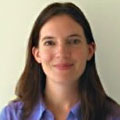 |
Dr
Molly Stevens
Molly Stevens is Reader in Regenerative Medicine and Nanotechnology
at Imperial College London. She joined Imperial in 2004 and the following
year was awarded the prestigious Philip Leverhulme Prize. She has also
been recognised by the TR100, a compilation of the top innovators,
under the age of 35, who are transforming technology - and the world
with their work.
Research in regenerative medicine within her mulitdisciplinary group
includes the directed differentiation of stem cells, the design of
novel bioactive scaffolds and new approaches towards tissue regeneration.
Molly has developed novel approaches to tissue engineering that are
likely to prove very powerful in the engineering of large quantities
of human mature bone for autologous transplantation as well as other
vital organs such as liver and pancreas, which have proven elusive
with other approaches. This has led to moves to commercialise the technology
and set-up a clinical trial for bone regeneration in humans. In the
field of nanotechnology the group has current research efforts in exploiting
specific biomolecular recognition and self-assembly mechanisms to create
new dynamic nano-materials, biosensors and drug delivery systems.
Molly is the co-founder and Chief Scientific Officer of BioCeramic
Therapeutics Ltd. The company is pressing forward with its plans to
develop a range of products (bioceramics and nanostructured scaffolds)
designed to help patients suffering from musculoskeletal conditions. |
|
|
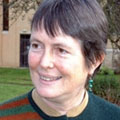 |
Brenda
Boardman
Brenda is head of the Lower Carbon Futures team at the University of
Oxford's Environmental Change Institute. Her main research focus is
on energy efficiency, the way that energy is used in British homes
and the consequent policy implications. She has been a member of the
DTI's Energy Advisory Panel and is widely viewed as one of the most
experienced in her field. She was awarded an MBE in 1998 for her work
on energy issues. Brenda has a leading role in the new UK Energy Research
Centre (UKERC), which launched in October 2004.
Her research focus is on demand-side energy issues in the UK. In addition,
as part of the UKERC, Oxford University and the Environmental Change
Institute are hosting the Meeting Place, which will bring together
national and international energy experts to discuss and debate energy
topics
Brenda's other major projects include the 40% House Project (funded
by the Tyndall Centre) and Carbon Vision = Building Market Transformation
(funded by the Carbon Trust and ESPRC - Engineering and Physical Sciences
Research Council). Both projects are looking at how dramatic reductions
in greenhouse gas emissions can be achieved in the built environment
by 2050. |
|
|
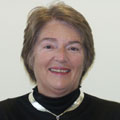 |
Dr
Louise Bennett
Dr Louise Bennett had an initial career as a Government scientist working
on locust plague dynamics in Africa, then operations analysis and aircraft
cockpit design at the Royal Aircraft Establishment. In the late 1980's
she moved into the private sector as an IT Director. Over the last
twenty years she has worked at board level in both the private sector
(Thorn EMI, Logica, AEA Technology, vivas) and public sectors. She
has worked on various government advisory bodies (including the Police
IT Organisation as a non-executive director and Defence Scientific
Advisory Council). In her consulting work she focuses on all aspects
of strategic and corporate governance. She has a particularly strong
track record in the exploitation of new technology, risk management
including the development of resilient organisations, fraud prevention,
crowd safety and the ethical dimensions of governance. She is currently
Chairman of the BCS Security Forum Strategic Panel and a member of
their Government Relations Group. |
|
|
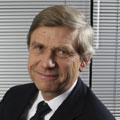 |
Hermann
Hauser
Hermann Hauser co-founded Amadeus Capital Partners in 1997 with Anne
Glover and Peter Wynn. In his long and successful history as an entrepreneur
and venture capitalist, he has founded or co-founded companies in a
wide range of technology sectors. These include Acorn Computers, Active
Book Company, Virata, Net Products, NetChannel, and Cambridge Network
Limited. He was a founder director of IQ (Bio), IXI Limited, Vocalis,
SynGenix, Advanced Displays Limited, Electronic Share Information Limited
and E*Trade UK.
At Amadeus Hermann has been a non-executive director of many investee
companies including CSR, which provides single chip wireless solutions
supporting communications over short-range radio links, and Entropic
Research Laboratory, a company that developed voice recognition software,
which is now the voice recogniser in Microsoft Word. Entropic was sold
to Microsoft in 1999. He is a non-executive director of Plastic Logic,
which has developed a process for producing flexible plastic transistors
for use in computer displays, and Solexa, which is developing ultra-high
throughput DNA sequencing technology.
Hermann was awarded an Honorary CBE for ‘innovative service to
the UK enterprise sector' in 2001. In 2004, he was made a member of
the Government's Council for Science & Technology. |
|
|
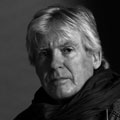 |
David
Harsent
David Harsent has published nine collections of poetry. The most recent,
Legion, won the Forward Prize for best collection 2005 and was shortlisted
for both the Whitbread Award and the T.S. Eliot Prize. His Selected
Poems appeared from Faber in June 2007. His work in music theatre has
involved collaborations with a number of composers, but most often
with Harrison Birtwistle, and has been performed at the Royal Opera
House, Carnegie Hall, the Proms and on Channel 4 TV. A new opera, The
Minotaur (also with Birtwistle) will open at ROH in April 2008. Work
in progress includes a novel, The Wormhole, and a new collection of
poems. Harsent also writes crime fiction and screenplays under the
pseudonym David Lawrence. He is a Fellow of the Royal Society of Literature
and in 2005 was appointed Distinguished Writing Fellow at Sheffield
Hallam University. |
|
< Back to details of awards evening |
|


